Radio Connection Alumni Howard Parker: “Voiceover God”
By Tom Richards, Radio and Production Magazine February 2003
If you had to single out just one voice artist whose career has seen staggering growth in the last year, it would have to be Howard Parker. Over his ten-year journey from his phone call to Radio Connection president Jimi Petulla to begin his career to the first radio gig in southern New Jersey, to Radio Creative director chairs at Omaha and Syracuse, to WYSP Philadelphia as in house station voice and producer, to his current prominence among New York’s voice-over elite, Howard’s growth has been truly phenomenal. He’s on the Travel Channel, HBO, Court TV, CNN, USA Network, ESPN Classic, and Showtime: does promos for NBC-TV affiliates in Philadelphia and Boston, plus others in Houston and Seattle: and radio imaging in Chicago, Toronto, St. Louis, and more.
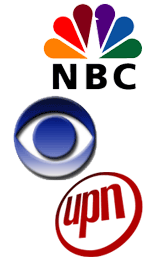 But it’s perhaps in the domain of movie trailers that the 34- year old Mr. Parker has made the greatest impact. After nailing his first trailer audition for the romantic comedy “Blow Dry,” the hits started coming with “Moulin Rouge,” rapidly followed by “Planet of the Apes,” “Minority Report,” “Black Knight,” “The Others,” “Star Wars Episode II, The Attack of the Clones,” “Chicago,” two Golden Globe nominees for Best Drama, “Gangs of New York,” and “The Hours;” and the upcoming “Terminator 3,” the pace shows no sign of letting up.
But it’s perhaps in the domain of movie trailers that the 34- year old Mr. Parker has made the greatest impact. After nailing his first trailer audition for the romantic comedy “Blow Dry,” the hits started coming with “Moulin Rouge,” rapidly followed by “Planet of the Apes,” “Minority Report,” “Black Knight,” “The Others,” “Star Wars Episode II, The Attack of the Clones,” “Chicago,” two Golden Globe nominees for Best Drama, “Gangs of New York,” and “The Hours;” and the upcoming “Terminator 3,” the pace shows no sign of letting up.
RAP caught up with Howard in his New York studio after his last ISDN feed, on a day that begun 12 hours earlier.
TR: Is what you’re doing now pretty much what you had always wanted to do?
Howard: Well, it was a dream for a while, but I didn’t necessarily have it as an outright goal until I actually started to realize it happening. It was more of a daydream or a fantasy because it seemed a little on the unrealistic side.
TR: But at some point you had to start doing things in order to make that dream come true. What do you think the first substantial move was?
Howard: The first substantial move was early on. It was when I first got into radio as an intern. I went through a broadcast trade course called Radio Connection, I spoke with the CEO of the company Jimi Petulla and he hooked me up with an externship . He told me to go see this guy David Jay at WIOQ in Philadelphia. David ended up becoming my mentor, and in the beginning I was adamant that I should be in production. At the time I thought I wanted to be on the air. I thought I wanted to be a newsreader.
Howard Parker gives Radio Connection full credit for getting his career in radio and voiceover announcing started. We wish him continued success.
A Small Sample of
Howard’s Work

Movie Trailers
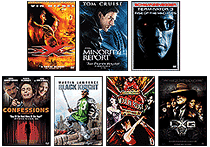
Cable Networks
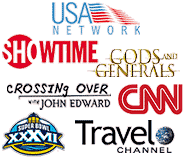
TR: What were you expecting when you got there?
Howard: I didn’t know what to expect. I’d never even set foot in a radio station before. I didn’t know what a cart deck was. I would have known a reel-to-reel only because I’ve seen them on television. But I didn’t know anything. My first job was filing production orders. I started from scratch which was tough because I had graduated from college and worked in the business world for a couple of years, and here I was filing production orders and running odd errands around the radio stations for kids that were younger than me that hadn’t even gone to school. But I had to suck it up, you know. This was it. If I was going to go for it, I was going to have to go for it completely.
TR: At what point did you figure you were on the right track, that you had made a good decision?
Howard: The first time I got to read a tag. I heard myself on the air, and I’m like, I can do this, I can do this.
TR: What kind of advice did David Jay give you other than to get into production?
Howard: He thought it was a good idea that I go to a small market to start and not to start in a large market. He said that in a small market you’re going to learn every facet of radio. You’re going to get to experience every part of it. Not just production. Not just on air, but promotion and engineering and programming and continuity. So I took his advice and got my first radio job on May 2, 1994 in Cape May, New Jersey at WFNN and WJNN, and I did learn everything. I did the news in the morning from six until ten, and I was a board op after that for two hours for the G. Gordon Liddy Show. And after that I was the Production director doing commercials.
TR: How long were you there?
Howard: I was there from ’94 until June of ’96, a little over two years. By the time I left I was Operations Manager. By the time I left I knew everything. I programmed the automation, I assigned production, God I did everything, even cleaned the snow off the dishes in the winter.
TR: Was it worth it?
Howard: Oh yeah. The funny thing was when I left there I knew exactly what I wanted, and that was to be a Production Director in a radio station, to be a full time off-air Creative Services Director, write copy, producing copy. I wanted to be involved in imaging, making promos. I still liked commercial making too, so I didn’t want to walk away from that either. So in the summer of ’96 I took a full-time gig as a Creative Producer for a cluster of stations in Lincoln, Nebraska. They were owned by a small company called Triathlon Broadcasting. They’re now owned by Clear Channel. I sent a stack of tapes out when I was still in New Jersey and got responses from different places, but they were the most eager to meet me, and the money was right. They flew me out and wined and dined me, and I thought this was the greatest thing in the world. So I jumped at it.
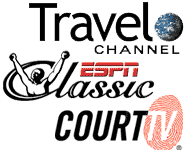 TR: So this was a bigger market for you. How was Lincoln different from Cape May?
TR: So this was a bigger market for you. How was Lincoln different from Cape May?
Howard: Well it was still a small market. It was market #160, #170, or something like that. So compared to Cape May, which was probably #350 or so, it was different. Lincoln was an actual little city. It had a little downtown and it was vibrant. It was the state capital so it felt bigger than it was. But it was neat. I grew a lot there. I really learned what the job was all about.
This is also where I learned about generating outside income. About three weeks after I was there, a guy from the local cable company Cable Vision, came into the station and introduced himself and said he heard some of the stuff I’ve done and wanted to know if I wanted to come down and maybe once a week read commercials for Cable Vision. I almost fell out of my chair. He offered me US $35 bucks a script. You’ve got it. I’m there. I thought it was the greatest thing in the world. So at lunchtime, usually on Wednesday or Thursday, I’d hop in the car and drive over to the Cable Company, which was a mile away, and I’d read two or three scripts a week. It was fantastic. The next thing I knew, I was making four, five hundred bucks a month on the side. And I thought this is insane.
By the time I left Lincoln it had grown to the point where I was generating substantial side income that was rapidly approaching what I was making at the radio station. I realized that as Production Director, if you play your cards right in the market, you can do quite well. You should be able to double your income just making spots — for restaurants or car dealerships, jewelry stores, whatever it might be — and getting talent fees for it.
TR: Where did you go from Lincoln?
Howard: While I was in Lincoln I had a number of stations approach me about coming to work for them. But it was a cluster in Syracuse, New York, which really caught my attention. It was a much better market than Lincoln. It was a market #70 or something like that at the time. The population was eight or nine hundred thousand people in the metro area, and it was an actual city. They had a neat studio with a great big console, and they were willing to buy a fancy mic and pay me more money. I was going to get better talent fees too, so it was just the right move.
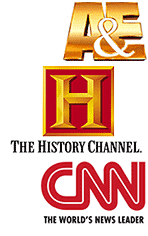 TR: I would imagine pretty soon after hitting Syracuse you started calling on the local cable company.
TR: I would imagine pretty soon after hitting Syracuse you started calling on the local cable company.
Howard: Yeah, but it took about six months. I definitely took a hit. I took some clients with me that I had in Nebraska and continued to do their spots from Syracuse, but it took about six months getting comfortable with the job duties, which were a little more intense. I was doing more commercials because they were generating considerably more income than the stations in Nebraska were, and then also the company had stations in small towns like Ithaca, New York and in Maine and places like that. They were having me do stuff for them as well. So I had more on my plate. But after about six months it started kicking.
TR: And so there you are in the snow in Syracuse.
Howard: In the snow in Syracuse. There’s something peaceful about it. You’re still close to all the dynamic environment of New York and the cities of the northeastern quarter but it has a little bit of a mid western feel to it. For a kid that grew up in southern California in San Diego, Syracuse is pretty neat, believe it or not.
TR: Wow, people would die to live in San Diego.
Howard: I know. That’s the funny thing. Everyone’s asking me, now that I can go anywhere in the country, why I don’t go back to San Diego.
TR: Is there anything about your growing up in San Diego or growing up in the family that you did that helped prepare you for your voice-over career?
Howard: I’d have to say listening to my father talk on the telephone. My father had an amazing resonate voice and an incredible amount of confidence when he spoke on the telephone. That sounds silly but I always thought that. And I still hear his voice to this day. When I was really starting out I used to get nervous about being on the mic. So I would just imagine my father talking on the phone to one of his clients in that big booming voice and I thought, well I just got to try to emulate that.
TR: So he kind of set the standard for you. Where did he get that?
Howard: I don’t know. My grandfather had it too. As a matter of fact, my grandmother just gave me this old box that was in her closet. It’s a vintage 1940’s Dictaphone. It sat on my father’s desk in his den at home, and I’ve got all these recordings of him talking, practicing business speeches and things like that. And he’s also got recordings of his children — my father, my aunts and uncle sitting on his knee as he’s asking them about baseball or their recital or whatever it might be. And these recordings are funny. [Low deep voice] “Howard, come on sit down. Explain to me, how was baseball practice today?” “Well sir, I threw a good fastball, and I got a good chance to get a good look at the shortstop,” and blah, blah, blah.
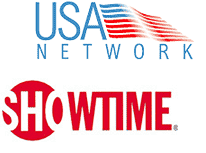 TR: You’re thinking on your feet. You were ad-libbing at a young age.
TR: You’re thinking on your feet. You were ad-libbing at a young age.
Howard: Exactly.
TR: How long were you in Syracuse?
Howard: I was in Syracuse for fifteen months. I wasn’t there very long. I met another important person in radio career — I don’t want to leave anyone out; there are many — a guy named John McCray who was my Program Director, actually he was more of a friend. He wasn’t really my superior. He was the Program Director and the Operations Manager for the rock station in the cluster in Syracuse. And he was an old radio guy that had worked all over the country. He programmed the rocker in San Francisco and KDKB in Phoenix. He programmed for CBS in St. Louis and Chicago and other places. Anyway, he knew Tim Sabian at WYSP in Philadelphia, and he was instrumental in getting me listened to down there.
TR: And so the opportunity at ‘YSP came about. Paul Turner must have started his own business at that point?
Howard: Yeah. I think Paul Turner actually left and had been gone for a year or two by the time I became involved with ‘YSP.
TR: How were they getting by in the meantime?
Howard: Well that’s a funny story. There’s a kid that we both know named Chris O’ Brien that I had actually met down the Jersey shore when I was working down there. He had actually come in over the summer and was an intern for me, believe it or not. Anyway, he landed the coveted Creative Services Director gig at ‘YSP. This would have been in the summer of ’98. And I think they were using Jeff Laird as the voice at the time. At this point, Paul was gone. And simultaneously as my Program Director John Mc Cray was talking to Sabian about me, Chris O’ Brien calls up and says, “Sabian’s looking for a new voice. I want to try you out.” So I voiced some stuff for Chris, and within a week it was on the air. And it just kind of took off from there.
After about a month of voicing promos and stuff like that for ‘YSP from asking me how would I feel about coming down and being an in-house voice guy. I was kind of blown away. I couldn’t understand it at the time. I thought, one radio station, a stand alone, is going to pay me to come down and just be a voice guy to voice promos? No commercials, just promos. “We promise you, you will not go near the commercial department, and you will never talk to a salesperson. You’ll have your own room, your own mic. All I want you to do is voice and occasionally put together a promo or two.” I couldn’t believe this, but it was real.
TR: It’s kind of unusual to have an on-staff announce voice.
Howard: Yeah. I think Tim Sabian was used to having Paul Turner for years and years, and it was frustrating for him to have to deal with someone that was outside the building. Also he didn’t want to deal with agents and contracts and copy limits and copy deadlines. He wanted to know whenever he snapped his fingers, there’s a voice guy to read for him.
TR: So how busy were you?
Howard: Well, I was really busy. ‘YSP is a big money making monster in Philadelphia as you know. There is nothing they don’t sponsor. I mean, they squeeze every drop out of that place. It is just a big machine. There was a lot of stuff, and I got involved in the creative part, which was cool. I wasn’t quite at the point where I wanted to give it up yet. So this was interesting to me working there. There were three of us. There was Rich DeSisto running the commercial department, Chris O’ Brien imaging the radio station, and then I was there to help with the imaging..
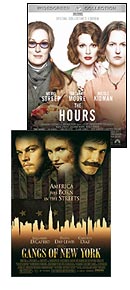 And when football season came, I was in charge of basically putting the football broadcast together. When it was time to produce that, I wanted to come at it from a different direction than had been done in the past. David Jay back at ‘IOQ in Philly — who I had kept in touch with and I still spent Friday afternoons with him even when I was in New Jersey watching and listening and learning — he had a very unorthodox approach to production. You always knew his radio station when you went through the dial. You knew it was his stuff you were hearing because he was so much more theatrical and cinematic in its approach. And whether it be music from movie soundtracks or the way the voice guy spoke, it was always just left of center, just very different. Bigger sounding. Larger. Less compression, less fidelity. The meters were always moving with him. And I wanted to try to do that but only do it with football and try to include hard driving rock riffs, but at the same time using big Hunt For Red October type themes. And it was cool. It really kind of clicked there. By the middle of the first season we really found a groove with the sound, and Sabian helped me a lot in that respect. I grew a lot under his tutelage. He really kind of focused me, especially in my delivery for radio.
And when football season came, I was in charge of basically putting the football broadcast together. When it was time to produce that, I wanted to come at it from a different direction than had been done in the past. David Jay back at ‘IOQ in Philly — who I had kept in touch with and I still spent Friday afternoons with him even when I was in New Jersey watching and listening and learning — he had a very unorthodox approach to production. You always knew his radio station when you went through the dial. You knew it was his stuff you were hearing because he was so much more theatrical and cinematic in its approach. And whether it be music from movie soundtracks or the way the voice guy spoke, it was always just left of center, just very different. Bigger sounding. Larger. Less compression, less fidelity. The meters were always moving with him. And I wanted to try to do that but only do it with football and try to include hard driving rock riffs, but at the same time using big Hunt For Red October type themes. And it was cool. It really kind of clicked there. By the middle of the first season we really found a groove with the sound, and Sabian helped me a lot in that respect. I grew a lot under his tutelage. He really kind of focused me, especially in my delivery for radio.
TR: And at the same time you were part of a creative team with Chris and Rich. How did that flush out? How did you feel about sharing some of the creative impulse with a couple of other guys?
Howard: I enjoyed it. Chris and I are diametrically opposed, but in a good way. Our styles are different. I’m more of a minimalist whereas he is . . . I mean I don’t think I’ve ever heard anybody, and I doubt if I ever will hear anyone, that can pack as much stuff in 30 seconds as that guy. It’s remarkable.
TR: How long were you at ‘YSP and how did that exit come about?
Howard: I was at ‘YSP for two and a half years, the longest I was at a radio station. Leaving as difficult. I certainly could have stayed if I wanted to, but it got to the point that I was so busy that it was time for me to leave. About a year after I had been at ‘YSP, I got a hell of an offer to go to San Francisco to be the Creative Director for a couple of sports stations, and it was going be a good gig. Had I stayed in radio, I would have been tempted by it because of the fact I was going back to California, and San Francisco is gorgeous. And it would have been fun, and it would have been the right format for me. I love that kind of stuff. I loved the idea of going into sports format but being kind of a rock/classic guy if there is such a thing. But I just adored Tim Sabian and the way he operated, and he also made it clear to me that if I stayed put and gave him what he wanted for a few years that he would return the favor. And he did. When I decided not to go, he took my tape and sent it up to New York. And about a week after he sent it up I got a phone call from the agency saying they wanted to meet me. That was pretty scary. Riding the train up I had to keep reminding myself, you can do this kid, you can do this. Meanwhile I’m terrified.
TR: And what was the first meeting like?
Howard: Oh it was wild. I sat down in a room in one of the agents’ offices. And I was surrounded, literally surrounded by agents. It was as though I was in the middle of a circle and was just being peppered with questions by agents, probably seven or eight of them. It was fascinating. I started to relax once the questions started coming. I started to relax a little and realized that wow this is really for real.
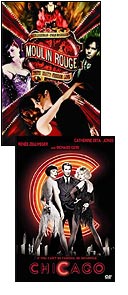 So after the meeting they said, “Well we want to sign you,” and the department head suggested a voice coach I go see to help alleviate some of my newly formed radio habits.
So after the meeting they said, “Well we want to sign you,” and the department head suggested a voice coach I go see to help alleviate some of my newly formed radio habits.
At that point I was at ‘YSP and I was doing well there. I was making a lot more money there, although I wasn’t hip deep in the commercial realm of the city, whereas I was in Syracuse and Lincoln.
So I wasn’t generating the revenue from commercials and so forth, which I think I certainly could have done there. I was more dependent on ‘YSP. But it was then that I started taking on other radio clients as promo voice, and that started to slowly grow.
So, I’m signed by Buckwald, and I took a couple of quick tutorials to try and walk away from a little bit of the classic radio yuk that we are guilty of from time to time. And then I started auditioning. And I actually landed my first audition and got the gig. It was something for Comcast in Philadelphia. It was a boxing commercial, if I remember correctly. In my first full month with Buckwald I billed like US $1500 or $1600. Bam! The second month really started to take off. I billed six grand, and I was like: this is insane. I started doing a lot of promos. I did a lot of Comcast stuff. Then at the end of the month I had an audition for a Cable TV station. It was the Travel Channel. They liked me and booked me. Then they booked me again, and then over the course of the next two months I was working for them three or four days a week. Then in about what would have been the fourth month with Buckwald, they signed me to a one year contract to be the signature voice of the network. And then it was off to the races.
TR: So there you are. You’ve got your network gig.
Howard: Yeah, got the Travel Channel. Then I started booking little commercials for kid’s games and some other cable stuff. I started doing ESPN Classic spots, and other cable things started coming my way. And I started adding radio stations and picked up a station in Toronto, and one in Portland, Oregon, and one in Sacramento. Things started growing and rolling, and by the time it was the end of the year 2000, I was far, far exceeding my ‘YSP income through Buckwald. And this is where my PD Sabian was just amazing because he was so generous with my time and allowing me to pursue these other opportunities. The deal was, just get work done and get it done right, then you’re free to do what you want. So he was really, really, generous in that respect and will have my undying loyalty from here on out.
TR: That’s apparent, but of course, there has to come a point where you have to cut those ties.
Howard: That did come about. At the end of the first year at Buckwald, I had an opportunity to audition for a very small movie trailer for Miramax, the only New York based studio. It’s a little British comedy, called Blow Dry, a limited release comedy. It was only released in Los Angeles and New York and maybe a couple other select cities. I auditioned and got it. It was my first trailer and I thought oh my God this is what I dreamt about. I had collected trailer tapes from way back when I was in New Jersey. I would call up all the big agencies in LA and New York and collect all these tapes and listen to these guys like Bill St. James and Don La Fontaine and Peter Cullin and Andy Geller and all these big guys. I was just obsessed by it. Never really thought it would pan out, but to me they were the cream of the crop. They were the best of the best.
After that I worked on the TV spots for the film. Then afterwards, my agent at the time, Jason Marks at Buckwald, said, “I have been given the go ahead to market you to the trailer world in Los Angeles.” I said, “Well let’s do it!” he is now my point guy at Buckwald and responsible for the lion’s share of what I do. He’s the trailer guy, and what we’ve done from New York is actually pretty remarkable. Aside from Hal Doug or Bill St. James, there are really no other trailer guys here. And Jason was absolutely instrumental in knocking those doors down and getting me in to read and getting me opportunities.
TR: What was his rap?
Howard: Well he just walked in and said, “Look I’ve got a fresh voice. I’ve got someone who’s young sounding.” I think the scope was that a lot of the guys sound old and we’ve heard ’em and heard ’em and heard ’em, and now we want someone fresh. We want someone young sounding. That was his shtick. And sure enough, Twentieth got an MP3 of stuff I had done for this movie Blow Dry for Miramax, and they called up and said, “Look, we’re working on a new film, and we want to try out an entirely new voice on it. It’s called Mulon Rouge.” So I auditioned again and the next thing you know I was finishing spots for it and it absolutely exploded. Then it was off to the races again.
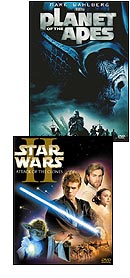 TR: Has it been almost exclusively trailer work from that point?
TR: Has it been almost exclusively trailer work from that point?
Howard: Well, no. By the time trailers started to take off, I had pretty much firmly been planted in Travel Channel and ESPN classic. I started doing Crossing Over with John Edwards, some syndicated stuff, and I started adding TV affiliates NBC in Philly, CBS in Boston and UPN affiliates in Houston and Seattle and places like that. So I was on my way to growing in that area when the trailers started to kick in. But if the trailers got to busy — obviously we’re going to do that first if the opportunity is there.
You know it’s funny. I often wonder why I didn’t work my way up to it like everyone else. You know, start with the radio stations then go to the TV affiliates and then go to the cable networks then go to the major networks and then get the trailers. That’s generally the way it is. I didn’t seem to do anything that way. I did everything backwards. And another thing that’s interesting, of all the different types of voiceover work that I’ve done, whether it be radio station promos or TV affiliate work or commercials or anything, trailers just came naturally to me. It’s just lots of simple copy, four or five word sentences. It doesn’t take a big brain to do what I do.
TR: But there is a vibe that you nail.
Howard: Yeah. It’s funny: you’ve got to learn how to stretch these words out but make it sound natural still. And that’s difficult, to make one word last three to four times as long as it normally would in conversation, yet still have it sound natural.
TR: Can you think of an example?
Howard: Yeah, the second theatrical trailer I did was for the movie Planet of the Apes, the remake, the Tim Burton movie. And it was my first “in a world” trailer where I actually said those words — and that’s the big joke, “in a world.” But literally saying those words and stretching them but trying to sound natural and not laugh is funny — [in ‘the voice’] In a world where freedom is history. [laughter]
TR: Was there some kind of vacuum in the trailer world there?
Howard: I think the trailer world was at a point where they were — well, Don La Fontaine had absolutely dominated it and really transformed it from being a kind of stodgy announcer guy to a charismatic kind of whispery thing. The same way film I think kind of changed over the last twenty or thirty years by becoming more real, just more raw. His delivery was so unique and different, and basically what we’re all doing now is just an offshoot of that. After having dominated it for so long, I think that people were beginning to look for other guys. And there were always other guys doing it, but I never was really aware of it until I got involved, and then I realized how many guys I didn’t know about who were really doing well.
TR: You’ve had amazing growth in the last few years. How do you see growth coming to you in the future?
Howard: At this point I’m maxed out. I literally am turning down work on a weekly basis because I just can’t do it. There’s just not enough time. So growth for me fortunately is at a point where I have the luxury of being able to kind of pick and choose what I want to do more of, and I had the opportunity although it’s difficult with my schedule, is long form narration. I’ve started to do more and more of it for the History Channel and A&E.
TR: What about that appeals to you?
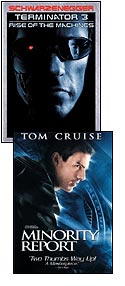 Howard: I just find it enjoyable. It’s relaxing. You don’t have to try as hard. You get to be yourself. There’s no attitude involved. You’re not screaming because it’s a rock station, and you’re not trying to scare people because it’s a scary movie and you must go see it. It’s just something different and I enjoy that.
Howard: I just find it enjoyable. It’s relaxing. You don’t have to try as hard. You get to be yourself. There’s no attitude involved. You’re not screaming because it’s a rock station, and you’re not trying to scare people because it’s a scary movie and you must go see it. It’s just something different and I enjoy that.
TR: As you look to grow your delivery and stuff, what kind of directions do you think you would go? What kind of things are you looking to do with your voice?
Howard: Well I wanted to, at some point, become me and not be another trailer guy doing the same old thing. I wanted to kind of add my own twist to it. And so I would say over the last six or eight months that I’ve really tried hard to be myself and to be different from other people. I try to inject a little more personality. I try to be less effected. I push less. I try to be as natural as humanly as possible in the delivery to use as much of my voice as I can, as opposed to whispering into the can, as opposed to whispering into the mike and trying to get a rumble done.
TR: Is challenge to abandon those ticks and those crutches and those put-on styles that we so frequently are asked to do?
Howard: Oh yeah, absolutely. It took me a good while to do it, and I always thought that I hadn’t been in radio long enough to really get sucked in by it. But oh, I had. It’s something that the more you work at it you realize how what seemed to be simple is so incredibly complex, and the nuances and the subtleties are not so subtle. They become mountains. I hearken back to what my mentor David Jay said about hearing yourself constantly. He said, “You always know that you’re growing and improving when you hear the work you did a year ago and cringe. That’s a good thing.” So always be cringing when you hear yourself.
TR: So as you evoke David Jay’s name and his advice to you, for the people reading Radio And Production, what’s the best piece of advice you can give folks?
Howard: If you’ve got someone that you feel really gets it radio is filled with people like this stick to them like glue and learn what you can from them. I’ve only touched on a couple of them. David Jay is one, and I had a guy in Nebraska named Jim Steel who was just wonderful to me in teaching. He was my Operations Manager. He would let me experiment and just kind of go in any direction I wanted to. I also had a country Program Director I worked for there, Charlie Thomas, who was equally as instrumental in allowing me to experiment and be creative. He didn’t put any borders up for me at all. He just let me go completely. And it was great to hear a guy say, “I don’t ever want to have to push you. My job is to pull you back.” And then there’s McCray in Syracuse and Sabian in Philadelphia.
TR: Well there are people that come into our lives and they do it for a reason.
Howard: Isn’t that the truth. Ten years. Almost ten years to the day. It was fast.
